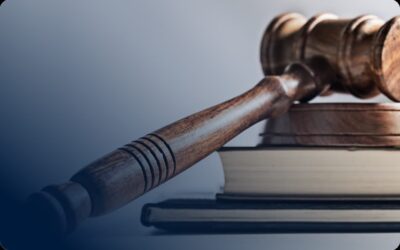In Colombia, before requesting compensation for damages, it is essential to understand whether there is civil liability on the part of the person who caused the damage. This applies both to persons and, in some cases, to animal owners. In order to establish such liability, four fundamental assumptions must be met.
1.An event that generate the damage
There must be a concrete fact that has altered reality and produced the damage. This can be caused by an action (doing something that should not have been done) or by an omission (not doing something that should have been done).
Imputation of the fact to a person
Here it is analyzed whether the fact can be attributed to a particular person. The imputation can be given by:
- Subjective liability
The person acted negligently, i.e., did not comply with the behavior expected of someone prudent and careful or acted recklessly or violated some regulation. In Colombia, this is the general rule: if someone proves that he acted diligently, he may be released from liability. - Strict liability
Applies in specific situations. Whoever benefits from a risky activity must assume the damages it may cause, even if he has acted with care. Can only be exonerated if he proves an extraneous cause.
In addition, there is no liability if any of the following causes are demonstrated:
- Extraneous cause: Unforeseeable, irresistible and external event. It may be an act of God, force majeure, the act of a third party or of the victim himself.
- Justifying facts: Such as legitimate defense, state of necessity or a legal order.
Finally, the act must have been carried out by a person who is imputable, that is, capable of understanding the unlawfulness of his or her conduct. In Colombia, minors under 12 years of age are unimputable.
Causal link
There must be a direct relationship between the act and the damage. That is to say, it must be proven that the damage would not have occurred without that action or omission.
4. Existence of a damage
Damage is a real affectation to the corporal or spiritual health or to the patrimony of a person. Damages arise from this, which may be:
- Patrimonial damages:
or Emerging damage: What the victim lost or had to spend.
o Loss of earnings: What the victim lost. - Extrapatrimonial damages: Such as moral or emotional pain.
What if the damage was caused by an animal?
Damages caused by domestic animals
According to article 2353 of the Civil Code, the owner of an animal is liable for damages caused by the animal once it has been released, unless the owner proves that the release was not due to negligence.
The Supreme Court of Justice has interpreted this rule as a presumption of fault, which means that the owner does not need to be at fault to be held liable. This figure is very close to strict liability.
In its ruling of March 11, 1976, the Court stated that:
- The owner is responsible even if the animal has strayed.
- The plaintiff only has to prove the damage and its relation to the animal.
- The owner is not exonerated just by demonstrating diligence.
- He may only be released if he proves an extraneous cause such as force majeure or the exclusive act of the victim.
What if they are fierce animals or dangerous dogs?
The Civil Code also provides for strict liability for those who own fierce animals that are of no use to the property. In these cases, having acted with diligence is not admitted as an excuse, according to the provisions of article 2354.
For its part, the National Code of Security and Citizen Coexistence obliges the owners of potentially dangerous dogs, -which with the modification of Law 2054 of 2020, calls them canine specimens of special management-, to respond for any damage they cause. In addition, they must have an extra-contractual civil liability policy.
A dog is considered a canine specimen of special handling if:
- Has attacked people or killed other animals.
- It has been trained for defense or attack.
- It belongs to a specific list of breeds included in the standard.
What if it cannot be classified as either a fierce animal or a dangerous dog?
In this case, the claim must be based on article 2353, therefore, the presumed fault regime will apply.
Conclusion
If you have been injured by another person or even by an animal, you may be entitled to compensation. However, you must prove the four elements of civil liability and, in the case of animals, understand whether it is presumed or strict liability.


